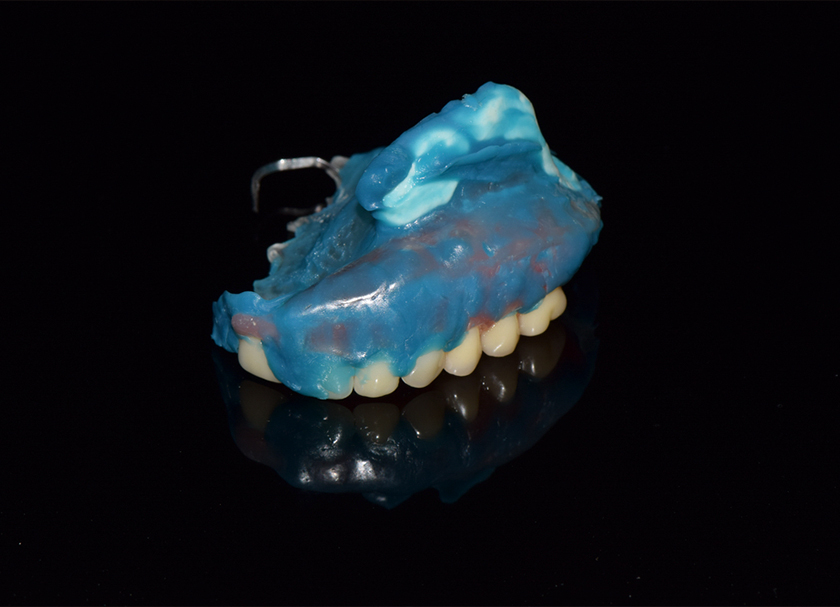Maxillofacial Obturator
A maxillary obturator can rehabilitate a maxillary defect (that makes swallowing, chewing, speaking, and using denture appliances impossible) and aids in the function of the same. It artificially replaces lost tissues and teeth.
At SmileMint Studio, our team of expert dentists and oral surgeons restore the function of speaking, chewing, and swallowing, filling the void left by surgery. Our treatment begins with patient counseling and instruction, as we believe in informing the patient as much as possible.
We also provide physical therapy, dietary counseling, oral hygiene maintenance and instructions, and fabrication of prosthodontic appliances. Any phase of the treatment may be altered depending on the nature of the disease, surgical complications, and the morbidity of the disease.

What to expect?
You can expect only the best dental services from us. Our dentists and oral maxillofacial surgeons are board certified and have many years of experience. They treat your dental problems with a holistic approach and provide you with long-lasting solutions.
So, if you want to enjoy great oral health with long-lasting results, book an appointment with us as soon as possible.
FAQ's
An obturator is used to close a hole left by surgical resection. In addition, an obturator can help separate the oral and nasal cavities if the soft palate is removed or just a portion of the hard palate.
A tracheostomy tube is inserted using the obturator. It is designed to fit inside the tube and offers a smooth surface for tracheostomy tube insertion. The patient should be provided the tracheostomy tube that best meets his or her needs out of the various varieties available.
Several oral and maxillofacial surgery treatments result in discomfort and pain, most frequently felt in the immediate aftermath of the surgery when the healing process starts.
Obturators have several benefits, including replacing missing teeth and hard and soft tissues and allowing patients to talk and swallow relatively normally. Additionally, it stops communication between the oral and nasal cavities and fluid leakage.
Clean the obturator at the end of the day and before night. You should clean the plaque using a brush, soap, and water. You can use denture paste. Stains can be eliminated using soaking agents sold in stores.
1. How do you maintain an obturator?
You can clean the obturator after meals and at bedtime. Soap water or denture paste is required to remove the plaque. Clean the obturator over a sink or wash basin to avoid damage if you drop it.
2. When is a maxillofacial obturator treatment suggested?
It replaces missing dentoalveolar or palatal structures. They close the oroantral or oroantral communications following surgery, trauma, or ablative cancer.
3. What are the benefits associated with an obturator?
An obturator has many benefits, including replacing teeth and hard and soft tissues. They allow the wearer to speak and swallow normally. They also prevent fluid leakage between the nasal and oral cavities.
4. What material is an obturator made up of?
Most obturators are made up of hard acrylic resin that is commonly used to construct dentures.
5. What are the uses of an obturator in dentistry?
Obturators are prostheses that close palatal defects after maxillectomy to restore chewing function and improve speech. They also preserve the remaining tissues and teeth to provide comfort and function to the patients.
Regain Your Happy Smile in Healthy Way
Be it a dental checkup, an inquiry about a dental procedure, or correcting your dental issues, we assure quality care and a happy smile with flexibility in appointment scheduling.

